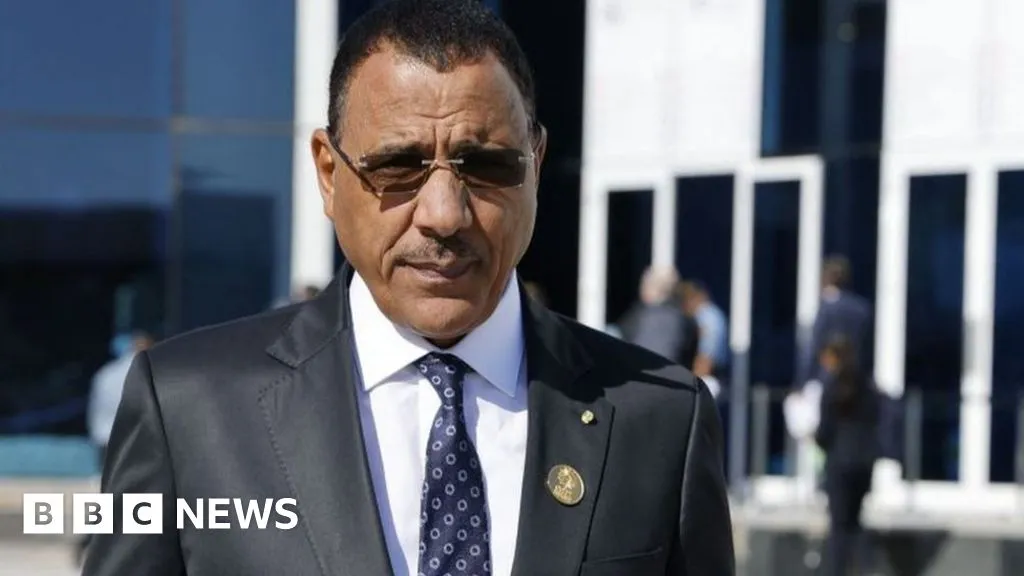- cross-posted to:
- worldnews@lemmy.ml
- globalnews@lemmy.zip
- cross-posted to:
- worldnews@lemmy.ml
- globalnews@lemmy.zip
In the geopolitical context of West Africa, this attempted coup highlights the recurrent destabilizing elements that persist in the region. The instability, primarily fueled by jihadist insurgencies, external powers, and internal grievances, significantly hinders democratic progress and socio-economic development. Niger, like its neighbors, Mali and Burkina Faso, finds itself in a precarious situation, walking a fine line between international alliances, internal political dynamics, and threats from non-state actors. This event calls for an in-depth academic exploration into the cyclical nature of power struggles in post-colonial states, specifically examining how external interventions, both past and present, intersect with domestic power dynamics.
So my question is: who is supporting it from the outside?
KSA or non-state Saudis are always the obvious choice. China doesn’t usually get that cozy with islamists. Russia is busy or they’d be the usual suspect. Iran is also busy, plus these guys look sunni.
It’s very possible this is wholly organic, but recent history makes that suspect.
It’s crucial to remember that Niger is a key western ally in the fight against Islamist militancy in West Africa. Therefore, direct involvement from countries such as the KSA, China, or Russia seems less likely, as it would conflict with their international relations and objectives.
While it’s conceivable that non-state actors could have a hand in the unrest, available information doesn’t provide concrete evidence for this claim. It’s also worth noting that jihadist groups in the region are not homogenous, and often have differing interests, making their involvement in political coups complicated and less probable.
However, you rightly point out that these situations are rarely as simple as they appear. The truth may well be a mix of local grievances and foreign influences, given the complex and interconnected nature of global politics. Until there’s more information, though, any assertions remain largely speculative.
Thanks for the insights guys (sadly lacking in the original article)
I have to argue against your assessment that the ksa does not support Islamic militant movements, under Bandar bin sultan they had a strong policy for favoring such groups including isis, a successful policy which seems to have led to his removal. Otherwise they have a strong history of non-state support of islamists.
Russia supported the taliban: https://www.voanews.com/a/extremism-watch_afghan-lawmakers-russian-support-taliban-no-secret/6192205.html and the taliban claims Chinese support as well which fits given post-us withdrawal activity.
The goal to extract the west from Africa fits well with both Russian and Chinese geopolitical goals, and ksa has had an agenda to “islamize” Africa for decades.
NONE of this is anything but baseless conjecture, but in my opinion Africa is the next geopolitical theater, much like the middle east was during the 2000s and eastern Europe and the pacific are now.
China would be well placed to make their maneuvers in areas where the west has fewer natural advantages and their arguments against colonialism bear weight, even the pacific seems less friendly to Chinese geopolitical aims than africa right now.
Your points are well-made, yet they lean heavily on historical precedent while missing recent dynamics. Although past foreign interference is notable, current geopolitics require fresh evidence to assert foreign involvement. Africa is indeed a growing geopolitical theatre, but the narrative isn’t solely about external actors - the agency of African states and citizens plays a crucial role. Dismissing them risks oversimplifying the complex reality.
I completely agree there is no evidence to support the claim of interference here.
We’ll see. I think the 2010s had a number of staged “coups” and perhaps we’re getting back to the era of organic political upheaval. Wouldn’t that be nice?




